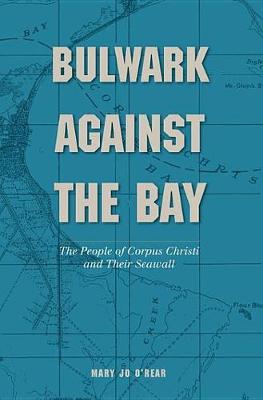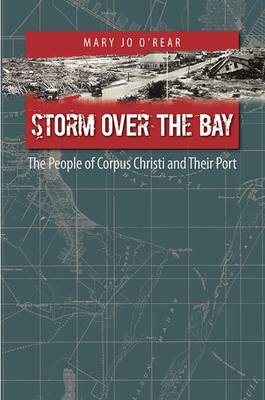Gulf Coast Books
2 total works
After a devastating hurricane in 1919, the people of Corpus Christi faced the stark reality of their vulnerability. It was clear that something had to be done, but the mere will to take precautionary measures did not necessarily lead the way. Instead, two decades would pass before an effective solution was in place. Mary Jo O'Rear, author of Storm over the Bay, returns to tell the story of a city's long and often frustrating path to protecting itself.
Bulwark Against the Bay reveals the struggle to construct a seawall was not merely an engineering challenge; it was also bound up with the growing popularity of the Ku Klux Klan, local aversion to Roman Catholicism, the emergence of the League of United Latin American Citizens, new efforts on behalf of African American equality, the impact of the Great Depression, support for Franklin Roosevelt, and reactions to the New Deal.
A case study of a community wrestling with itself even as it races with the clock, Bulwark Against the Bay adds to our understanding of urban history, boardroom and backroom politics, and the often harsh realities of geography and climate.
Bulwark Against the Bay reveals the struggle to construct a seawall was not merely an engineering challenge; it was also bound up with the growing popularity of the Ku Klux Klan, local aversion to Roman Catholicism, the emergence of the League of United Latin American Citizens, new efforts on behalf of African American equality, the impact of the Great Depression, support for Franklin Roosevelt, and reactions to the New Deal.
A case study of a community wrestling with itself even as it races with the clock, Bulwark Against the Bay adds to our understanding of urban history, boardroom and backroom politics, and the often harsh realities of geography and climate.
Since the late 1830s, the natural harbor at the mouth of South Texas' Nueces River has been a center of regional maritime trade. But by the early 1900s, a storm of political wrangling, cronyism, and corruption was threatening to scuttle the city's efforts toward securing a dependable deep water port to attract international commerce to Corpus Christi. On September 14, 1919, a massive hurricane struck the bay, burying the downtown area under ten feet of debris and killing as many as one thousand people. The storm left millions of dollars of damage in its wake. The citizens of Corpus Christi, rather than being demoralized, however, were galvanized by the disaster. In gripping detail, author Mary Jo O'Rear chronicles the successful efforts of the newly unified Corpus Christi-efforts that culminated in the dedication of the Port of Corpus Christi on September 14, 1926, seven years to the day after the storm that devastated the city. Storm over the Bay will appeal to readers interested in regional history, politics, and economics. It is a must-read for anyone who appreciates Corpus Christi and its colorful past.

